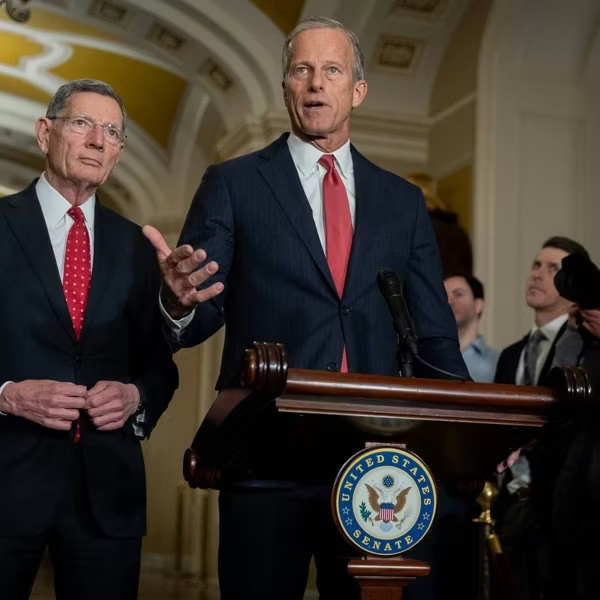While U.S. businesses have lauded the new tax law forced through by congressional Republicans and signed by President Donald Trump last month--which slashes the corporate tax rate from 35 to 21 percent--tax experts are warning that thanks to a loophole in the law, some companies may have more cause for celebration.
Previously, U.S. law allowed companies to avoid paying taxes on foreign earnings until the money was repatriated to the United States, which enabled U.S. companies to stock trillions of dollars abroad.
Under the new tax law, companies can no longer defer tax payments on money stashed abroad--but rather than paying the 35 percent they would have been taxed before, or even the new 21 percent rate, they are only required to pay 15.5 percent on cash that's held offshore, and 8 percent on less liquid assets such as plants and equipment.
The loophole comes from the formula used to calculate how much of a company's foreign assets will be taxed at the 15 percent rate versus the 8 percent rate--and how that formula applies to companies such as Apple, Microsoft, and Cisco, which have fiscal years that don't align with the regular calendar.
Harvard law professor Stephen Shay, who worked as a Treasury official under two former presidents, estimates that Apple, for example, could use the formula to avoid paying an estimated $4 billion in taxes. As Bloomberg explains:
The law actually specifies two dates that companies should use in tallying their offshore cash piles--and they have to pay the 15.5 percent rate on whichever tally is larger. The options: The two-year average of foreign cash as of Nov. 2, the date the House introduced its tax bill; or the end of the firm's current fiscal year--if it began before Jan. 1.
Here's how Shay said it could work for Apple, which began its fiscal year on Oct. 1: Under the Nov. 2 formula, the company's two-year average offshore cash stash was $234 billion. Shay said Apple's historical earnings suggest that figure could grow to $289 billion by Sept. 30, when its year ends.
Therefore, Shay said, if Apple's foreign subsidiaries operate on the same fiscal year, they could distribute as much $55 billion to their parent, taking the overseas cash total down to match the Nov. 2 number. And because there's a 7.5 percentage-point difference in the two tax rates, the company's tax savings thanks to the distribution could amount to $4.1 billion, he said.
"The new law says transactions meant principally to reduce taxes due on foreign profits can be disregarded by U.S. tax authorities," Reuters notes. "But tax experts said this anti-abuse measure does not apply automatically and that corporate tax lawyers could argue it does not apply to legitimate corporate actions."
Additionally, corporations have been considering how to shift liquid assets for months, according to Reuven Avi-Yonah, a tax expert at the University of Michigan Law School who told Reuters, "Even before the legislation was unveiled in November, multinationals were planning to convert cash to non-cash assets, although it wasn't entirely clear what would constitute cash for this purpose."
Shay says this opportuntiy for tax avoidance is the consequence of how quickly the bill went through Congress and to the president's desk--telling Bloomberg, "This bill was passed on a speed train schedule with no time to think." He called on the Treasury and IRS to urgently adopt clear new rules to prevent companies from exploiting the loophole.




